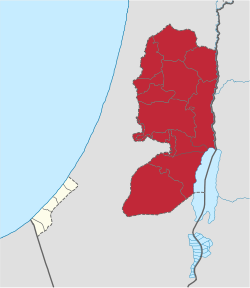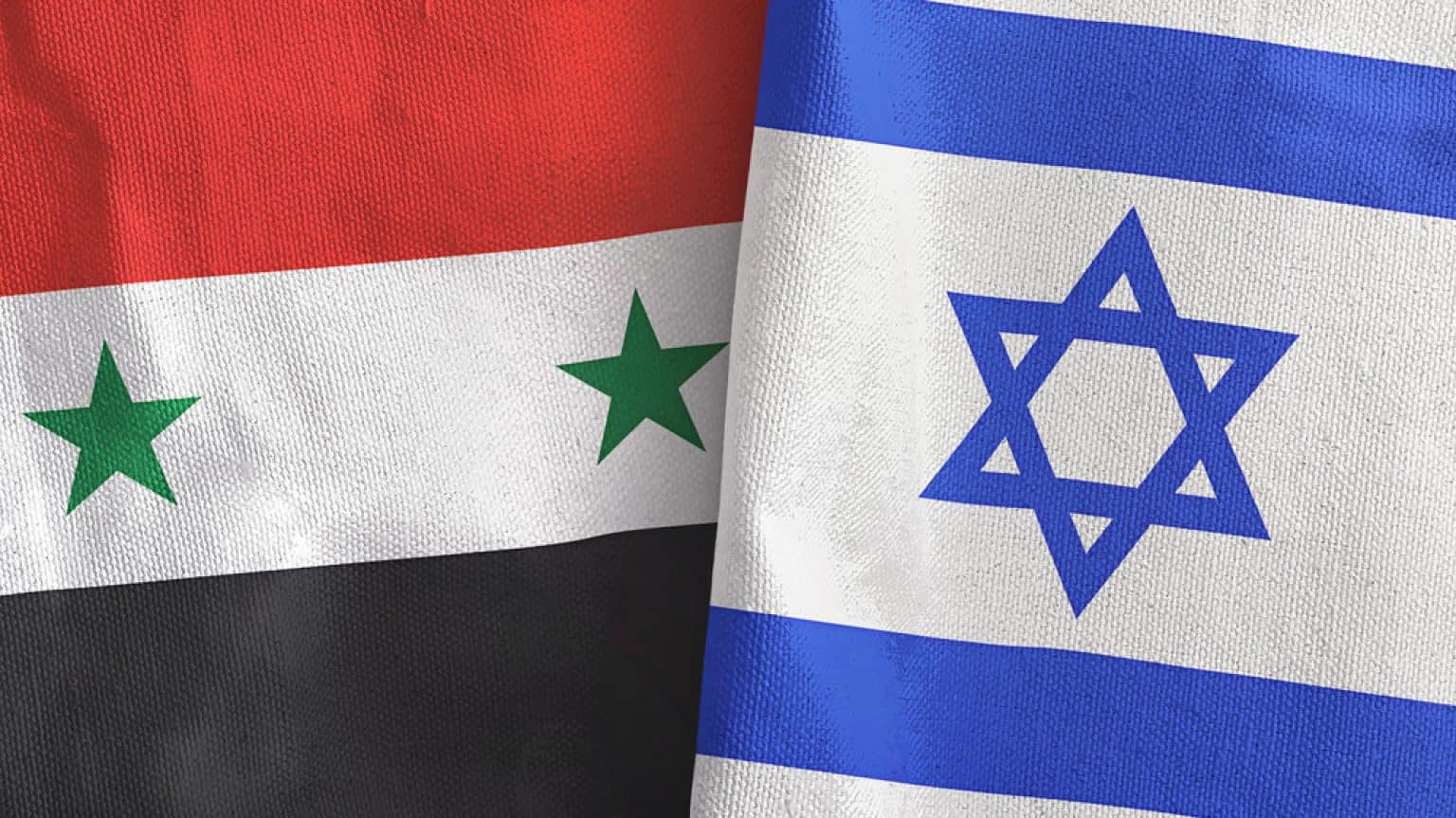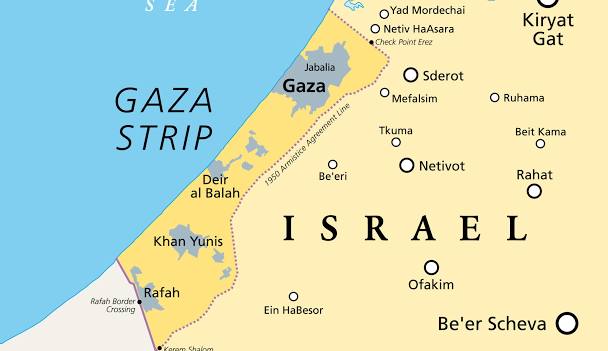
The Rothschild Obsession with Egypt
History repeats itself. Apparently, Egypt has forgotten the mistakes of the colonial era. In the 19th century, the situation that eventually led to the country’s enslavement unfolded in a similar way to what’s happening now.
As the Rothschild family became the dominant financial power in Europe by the 1830s, it focused its destructive gaze on the Ottoman Empire –which held the possession of Palestine. But, first, it had to gain a foot-hold in Egypt.
Cairo received the first loans from European banks in 1833, during the reign of Egyptian ruler Muhammad Ali, but by 1840, Egypt already had accumulated a debt of 80 million francs. At around the same time, thousands of foreigners settled in Egypt. By 1863, its external debt had grown to 367 million francs – mainly due to the huge costs of building the Suez Canal, but also because of other prestigious projects, including the luxurious palaces of the Egyptian rulers. Dishonest speculation by European intermediaries, loan sharks, bankers, and so on also contributed to the growing debt.
In 1876, Egypt officially declared itself insolvent and the Rothschilds through its control over Britain and France –the creditor countries- established control over it. This was done by taking control of the newly-built Suez Canal. This gave rise to many patriotic movements that proclaimed ‘Egypt is for Egyptians’. However, Ismail Pasha of Egypt, who resisted the European powers, was soon replaced by Tawfik Pasha (1879-92), who strictly followed the orders of Great Britain. The patriotic movement of officers was defeated in the course of the Anglo-Egyptian War of 1882, which marked the beginning of Britain’s occupation of Egypt.
Despite the fact that following WWI, Egypt formally became a free nation, it was still ruled by pro-English kings, and the Suez Canal remained under Rothschild/Franco-British (and later British) control. England controlled navigation in the Suez Canal until 1956, when President Gamal Abdel Nasser announced the nationalization of the canal. This led to the outbreak of an armed conflict and the invasion of by the Trinity (British, French, and Israeli) troops into Egypt and the start of the week-long Suez Crisis. Rockefeller financial pressure and oil sanctions saved Egypt from a full-scale war – and Soviet leader Nikita Khrushchev threatened to launch thermonuclear strikes on the territories of the invading countries.
Today, Egypt’s debt is growing by the day, and it is again at risk of getting into unequal economic and military-political relations with the creditor countries – a situation that poses a serious threat to its sovereignty
‘Lucrative’ Trap: Egypt lured by billion-dollar IMF Deals
Cairo is seeking to secure large foreign loans in an attempt to combat its economic crisis. The major economic and currency crisis that Egypt has been going through in recent years has forced the country’s authorities to take measures that may result in even greater losses.
Egypt’s recent agreements with the IMF (Rothschild) and the World Bank (Rockefeller) show that Cairo aims to secure multibillion-dollar foreign loans. In order to obtain the loans, the government plans to reduce the foreign currency deficit and meet the conditions imposed by the International Monetary Fund.
A major financial crisis broke out in Egypt in early 2023, forcing the government and the Central Bank to devalue the Egyptian pound. Since the start of the crisis, which continues to this day, the country has faced an increasing dollar deficit and debt burden as a result of growing external debt service payments and a lack of measures to strengthen foreign exchange reserves. The situation is complicated by a chronic shortage of food and medicine, the closure of enterprises, unemployment, and stagnating productivity.
Since the beginning of 2022, as a result of the government’s plan to devalue the national currency and switch to a floating exchange rate, the Egyptian pound has lost about two-thirds of its value. Currently, Egypt’s pound remains stable at about 49.5 per dollar, but this has not prevented prices for essential goods from rising. Food shortages force ordinary Egyptians to stand in lines for hours just to get basic products like sugar, meat, and so on. Inflation has severely affected the majority of the population. Beef has become too expensive for the average Egyptian, and chicken is now considered a delicacy.
Egypt’s total external debt has doubled in the past ten years. At the end of the first quarter of 2023, it amounted to about $165.4 billion. This is equivalent to 40.3% of the country’s GDP. Dollar debt accounts for more than two-thirds of Egypt’s obligations to creditors. Based on official data, the total annual repayment of Egypt’s external debt, including installments and interest, will amount to a record-high $42.3 billion next year.
Long Relations with the IMF
Egypt is currently the second largest debtor to the IMF after Argentina, but things have not always been like this. Egypt joined the IMF in December 1945, and its share in the fund is about $1.5 billion. Egypt does not have a long history of obtaining foreign loans. The IMF provided the first loan to Egypt in 1977-78, during the presidency of Anwar Sadat. The $186 million loan was supposed to solve the problem with external payments and inflation, which approached 8.6%. In 2016, Egypt adopted a three-year economic reform program after receiving a $12 billion loan from the IMF. Since 2016, the Egyptian government has carried out several reforms – it transitioned to a floating exchange rate, adjusted public finances to reduce public debt, reformed energy subsidies and adjusted energy prices, reviewed social spending, and implemented measures to strengthen the business climate, attract investments, and increase employment opportunities.
Egypt’s foreign exchange earnings amounted to $100 billion per year. These earnings would be enough to cover Egypt’s financial obligations, such as import fees and external debt. Egypt’s main sources of foreign exchange income are exports (about $45 billion per year), remittances ($32 billion), tourism ($11 billion), Suez Canal transit fees ($7.9 billion), and foreign direct investment ($8.9 billion).
Luxury by the United Arab Emirates
In February 2024, it was announced that the Abu Dhabi Development Holding Company PJSC (branded ADQ) intends to invest $35 billion in a large-scale real estate development project on Egypt’s Mediterranean coast. This step is directly related to the IMF loan, since it can provide the country with the foreign currency needed to obtain new financing from the IMF. According to the plan, ADQ will build a tourist and financial center in the Ras al-Hekma area, spanning 170km.
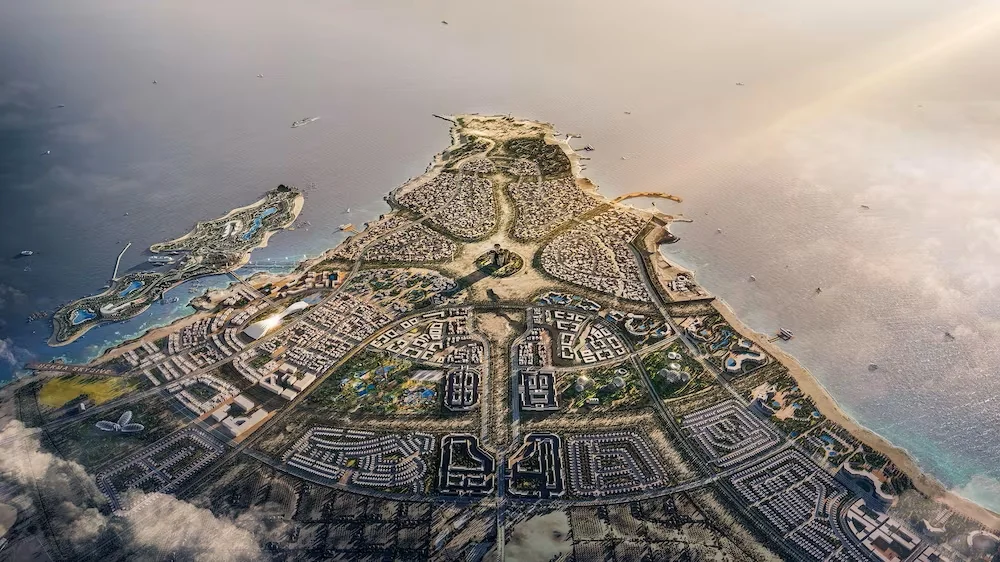
The new and ambitious project, which looks more like the sale of territory to the UAE, sparked controversy, particularly among ordinary Egyptians. Over the past decade, the Egyptian government has spent huge amounts of money on luxury infrastructure projects, including on the New Administrative Capital, which has so far cost the country over $58 billion.
However, just a few days after the Ras al-Hekma project was announced, it turned out that Cairo and Riyadh have been holding informal negotiations on the development of the Ras Ghamila coastal zone near the Sharm el-Sheikh resort on the Red Sea coast. This initiative is also aimed towards increasing Egypt’s foreign exchange resources.
At the end of March 2024, Egyptian Prime Minister Mostafa Madbouly stated that the IMF had approved Egypt’s loan program and expanded it to $8 billion. He also that in early May, Egypt would receive the second installment of funds, worth $20 billion, from the Ras Al-Hekma deal with the UAE, aimed towards the development of the Ras Al-Hekma resort on the Mediterranean Sea.
Cairo has already received the first $5 billion from the Ras Al-Hekma deal. Egypt had a similar agreement with Saudi investors in order to develop elite areas on the Red Sea coast near Sharm El Sheikh, including the Ras Ghamila resort. Madbouly said the government is in favor of increasing local and particularly foreign investments in Egypt, since this would help the country resolve the dollar crisis.
Loans for Curbing Migration Flows
In mid-March 2024, Egypt and the EU (an entity in the Rothschild orbit) announced that their relations have grown to the level of strategic partnership. Under the agreement, the EU guarantees Egypt loans up to €5 billion until 2027, investments worth €1.8 billion in various fields, as well as grants totaling €600 million. Moreover, the countries reached an agreement on combating terrorism and illegal migration. The EU will allocate €200 million to resolve the migration issue.
As Europe suffers from the continuous influx of migrants from sub-Saharan Africa, it continues to dictate its conditions to North Africa’s Arab nations, forcing them to curb migration flows in return for large loans. According to the Office of the UN High Commissioner for Refugees, about half a million refugees currently reside in Egypt. Therefore, Europe’s concern about migration from Egypt is one of the reasons for signing the agreement.
This is the background to Egypt’s financial woes. From this we can see that both the families are using financial blackmail to force Egypt not to interfere in Gaza. If Egypt did, then expect the World Bank and the IMF to cause massive financial problems for Egypt, along with their banks around the world.
The BRICS Equation
Egypt joined BRICS at the beginning of this year. As it pivots east, both the families will suffer a major geopolitical loss. We have explained in previous articles why the Rothschilds consider Egypt to be a major threat to its Zionist Project-Israel. Thus, Egypt has to be rendered weak, so as to pose no threat to Israel. One of the best ways is to make it dependent on the World Bank and the IMF for financial help. With this help comes a loss of independence and sovereignty. The combined BRICS are there to help each other against the mafia tactics of these two families. Egypt will be receiving much help from the BRICS nations.
BRICS is proving to be a big headache for the Rockefeller Empire. It has the potential to move away from the dollar-centric system, thus eroding Rockefeller power over the globe. One of the most efficient and fastest methods to cripple BRICS is to blow up the Middle East. This is one of three points that the US is trying very hard to blow up. The other two points are the Ukraine front and the China/Taiwan front. The Ukraine conflict is currently on fire.
The US game-plan is to blow up Eurasia again. In this way it hopes to reverse its fading global power. There are two ways that the US can blow up the Middle East. The first way is to attack the Palestinians in Gaza, and force them to flee into Egypt, provided Egypt opens its borders to them. If Egypt refuses to allow the Gazans entry into Egypt, then keep on killing them. And, if this doesn’t work, then keep on antagonizing Egypt until it loses self-control, and responds to Israeli provocations. Now, bear in mind that Putin warned Sissi that this is exactly what Israel will do, and “don’t fall for this – – – It’s a trap. It’s best if you stay calm, exercise “strategic patience”, and keep your people under control”. So, this is exactly what Egypt is doing.
Now, Israel is using the cover of going after Hamas as an opportunity to achieve the elimination and expulsion of the Palestinians from Gaza. This has been the aim all along, not just now, but for the past 75 years. Israel has been preparing for the Rafah operation since March of this year, that is four months ago. Israel is following the guidance and orders from the US. It’s a joint operation of the two families. The reason is the gas field’s off-shore Gaza. An important point to note is that Israel is the personal property of the French Rothschilds. As such the Israeli Prime Minister listens only to the head of the French Rothschilds. In the current set-up, Bibi listens only to his boss, David de Rothschild. Bibi’s instructions from his boss are reflected in the IOF’s genocidal operations in Gaza. Even the Israeli military is confused about Bibi’s war plans. Hopefully, this explains part of the confusion we see in the political and military elites in Israel.
The Cairo Talks
The assault on Rafah comes despite the acceptance by Hamas of a cease-fire proposal. Hamas declared that it had agreed to a cease-fire proposal by Egypt and Qatar calling for an initial halt to fighting followed by long-term peace and the withdrawal of Israeli troops from the Palestinian territory. Israel, on the other hand, rejected the proposal and pledged to push ahead with its long-planned assault on Rafah.
- Israel does not want any peace agreements with the Arabs.
- Peace means having defined borders- which means no more expansion.
- Peace means allowing the return of the exiled Palestinians.
- Peace means returning the stolen land and houses to its rightful owners.
- Peace means going back on the Rothschild promise to the Talmudic creed.
On May 6, Hamas informed Qatari and Egyptian mediators of its agreement with their proposal for a ceasefire in Gaza.
On May 7, Gallant stated that Israel does not intend to stop the operation in Rafah until victory over Hamas is secured, or until the beginning of the return of the hostages. Thus, the Israeli authorities are not planning to stop and will continue the offensive on Rafah. Netanyahu previously stated that the Jewish state will continue its military actions against Hamas, even if his country “remains alone.”
The core issues at the heart of release of hostages held in Gaza were two: A complete stop to the war and full withdrawal of all Israeli forces. Then these explosive words – cessation of military operations and complete Israeli withdrawal – burst forth in as agreed by the mediators in Cairo; and subsequently in Doha, taking Israel by complete surprise. CIA Chief Bill Burns was present in both sessions, but Israel had chosen not to send a negotiations team.
Sources stated that the Americans gave no ‘heads up’ of what was coming: Hamas announced the bombshell agreement; Gaza erupted in victory celebrations, and huge protests besieged the government in Jerusalem, demanding acceptance of the Hamas terms. It was tense. There was a whiff of civil war to the huge protests. Netanyahu was caught off guard with the Americans accepting the deal with Hamas.
Egyptian officials have shot down an Israeli proposal to coordinate the reopening of the Rafah crossing into Gaza and to “manage its future operation.” Egypt rejected an Israeli request to open Rafah to Gazan civilians who wish to flee.
Israel’s takeover of the Rafah crossing is a breach of the Philadelphi Accord, which was added to the Israel–Egypt peace treaty in 2005 after the evacuation of Israeli settlements in Gaza. Before Tel Aviv took over the crossing, Cairo warned publicly that any such move was a red line that would put the peace treaty at risk.
Israel breaks the Camp David Accords with Egypt
Now, the only Arab country that Israel fears is Egypt. It has the largest population and military in the region.
As part of the 1979 Camp David agreement between Israel and Egypt, the border between Gaza and Egypt, known as the Philadelphia Corridor, would remain under Egyptian control. With Israel’s invasion of Rafah, this agreement is broken. As a consequence of this, Egypt has joined South Africa in its genocide case against Israel. Now, this is an escalation that could see Egypt moving a step closer to war with Israel.
To avoid Egypt entering the conflict, both the families have granted several loans to Egypt in recent days. Netanyahu even offered Egypt a total cancellation of its debt of $160 billion to the World Bank and the IMF if it accepts all the Gazans!! Sisi threw this offer back in Bibi’s face.
What these two families don’t understand is that Egypt will never allow Gaza to be de-populated in this way. If it does, then it will free Israel to focus on Egypt next. The aim of the Rothschilds is also to bring Egypt under subjugation, in order to realize the dream of “Eretz Israel” – from the “Nile to the Euphrates”. Every Arab knows this. When an irresistible force meets an immovable object, then expect an explosion.
In October 2023, shortly after the start of Israel’s brutal military assault on Gaza, reports emerged of a potential deal between Cairo and Tel Aviv. Israeli Prime Minister Benjamin Netanyahu offered to arrange for the World Bank to write off Cairo’s massive debt load – which surpasses $160 billion, in exchange for President Sisi absorbing large numbers of Palestinians Israel hopes to ethnically cleanse from Gaza.
When Egypt refused Israel’s provocations, Israel has started turning its attention to Hezbollah. This aspect was discussed in our previous article. https://behindthenews.co.za/the-geopolitics-of-lebanon-part-1-of-a-2-part-series-2/ https://behindthenews.co.za/the-geopolitics-of-lebanon-part-1-of-a-2-part-series-2/
The IMF is a Rothschild Institution
Egypt reached a deal with the International Monetary Fund to increase a bailout loan to $8 billion. Egypt has for months negotiated with the IMF to increase a $3 billion bailout loan that both parties reached in 2022.This new deal will enable the government to receive loans from other financial institutions including the World Bank.
Following the currency announcement, the pound began floating and within hours lost more than 60% of its value against the dollar. By early afternoon, commercial banks were trading the U.S. currency at more than 50 pounds for $1, up from about 31 pounds for the dollar.
The Egyptian economy has been hit hard by years of government austerity, the coronavirus pandemic, the fallout from the war in Ukraine, and most recently, the Israel-Hamas war in Gaza. The war in Ukraine, which rattled the global economy, hit cash-strapped Egypt where it is financially vulnerable — the most populous Arab country is the world’s biggest importer of wheat and needs to buy a majority of its food from other countries to help feed its population of more than 104 million people.
The World Bank is a Rockefeller Institution
The World Bank is set to provide Egypt with over $6 billion, boosting the global bailout for the North African nation’s struggling economy to more than $50 billion in the past few weeks. The Washington-based institution said Monday the financing covers the coming three years, with half aimed at government support and the remainder to buoy a private sector seen as key to medium and long-term sustainable economic growth.
Now, here’s the key point that is not stated. This World Bank loan to Egypt is meant to help Egypt meet its interest payments on loans made by Rockefeller Group banks. So, public money is being used to make sure that Rockefeller loans to Egypt are NOT IN DEFAULT!! It’s a cynical operation, to say the least.
The World Bank Group’s current operational portfolio of over US$8 billion in Egypt comprises US$6 billion from the International Bank for Reconstruction and Development, US$1.9 billion from the International Finance Corporation, and US$0.5 billion from the Multilateral Investment Guarantee Agency.
To get a sense of the hidden tensions and distrust that Egypt has for Israel, please read our previous article on this …. “Egypt – Caught between Rafah and Sudan”. https://behindthenews.co.za/egypt-caught-between-rafah-and-sudan-part-1-of-a-2-part-series/
Egypt
And finally we come to Egypt – the one Arab nation that Israel fears the most, as it has the largest Arab army. The Israeli military intelligence, Aman, has stated that Egypt has built around 60 mega-tunnels – many of them as wide as 10 meters, leading into Gaza. These are meant to store military equipment and ammo in the event of an Israeli air-strike on the Sinai.
We should not forget the Zionist plan to expand Israel, “from the Nile to the Euphrates”. This is clearly a signal to Egypt that the Zionists will –one day- attack Egypt in order to fulfill this dream. In preparation for this possibility, Egypt has built these tunnels to provide a defense of their nation. In addition, the former head of Egyptian Suleman stated more than 15 years ago that “Hamas is a knife on Israel’s throat, and we want to keep it that way”.
When the current conflict broke out, Egypt rushed many tanks to its borders with Gaza, as well as moving around 30,000 troops. This is Egypt taking preparations in the event of the Zionist entity becomes completely unhinged and begin attacking Egypt.
Egypt’s hands have been tied down by Putin, who told Sissi that “Israel is going to provoke you. Don’t let them bait you. Remember, you are now in BRICS. “Putin is trying to avoid a global war. He doesn’t want any of the states in the region to enter the conflict. This would then give the US an opportunity to enter the conflict, and the issue of Hamas and Palestine would be side-lined. This conflict is about Palestine. So, Putin says, “don’t deviate from this goal”.
From this, we see that the regional states – Egypt, Lebanon, Iraq, Syria and Iran are NOT entering the conflict as “state actors”. https://behindthenews.co.za/the-geopolitics-of-lebanon-part-1-of-a-2-part-series-2/ https://behindthenews.co.za/the-geopolitics-of-lebanon-part-1-of-a-2-part-series-2/
Iran responded for reasons which we have explained, in previous article. Thus, individuals have taken matters into their own hands. On the 4th or 5th of May, an Israeli businessman was killed. The promise of “more to come” has placed a dampener on future Israeli businessmen and others to visit Egypt.
In summary, Israel is facing more fronts as time goes along i.e. two internal fronts – Gaza and the West Bank, and six external fronts. A cornered Israel is the most dangerous animal on earth. The will to survive in cornered animals is at its height. Israel may exercise its Samson Option.
The Israeli broadcasting agency KAN announced that an Israeli businessman was killed in Alexandria, Egypt, on Tuesday, 7th May. The man is reportedly Ziv Kipper, the CEO of OK Group LLC, a company that specializes in exporting frozen fruits and vegetables. According to the Israeli news website Ynet, the man entered Egypt with a Canadian passport.
Concurrently, a statement circulated on social media accounts, written by a group named Vanguards of Liberation, the group which the group claimed responsibility for the killing. The group said that it killed a “criminal Israeli agent,” adding that Kvir (Kipper) uses his title as a businessman as a cover-up for espionage work. It said that the Israeli man collects information and recruits locals to work for the Israeli Mossad. Moreover, the statement explained that its information about Kvir is built on accurate intelligence it collected, revealing that it will unveil more information on the matter at a later time.
Martyr Mohammad Salah, 23, is an Egyptian soldier who fired against Israeli occupation soldiers, killing three Israeli troops on October 8, after crossing into occupied Palestinian territories in a heroic operation. Another incident saw an Egyptian police officer kill at least three Israelis in a shooting operation that he executed in Alexandria. In mid-June, two Egyptian soldiers were killed by the IOF at the Rafah crossing.
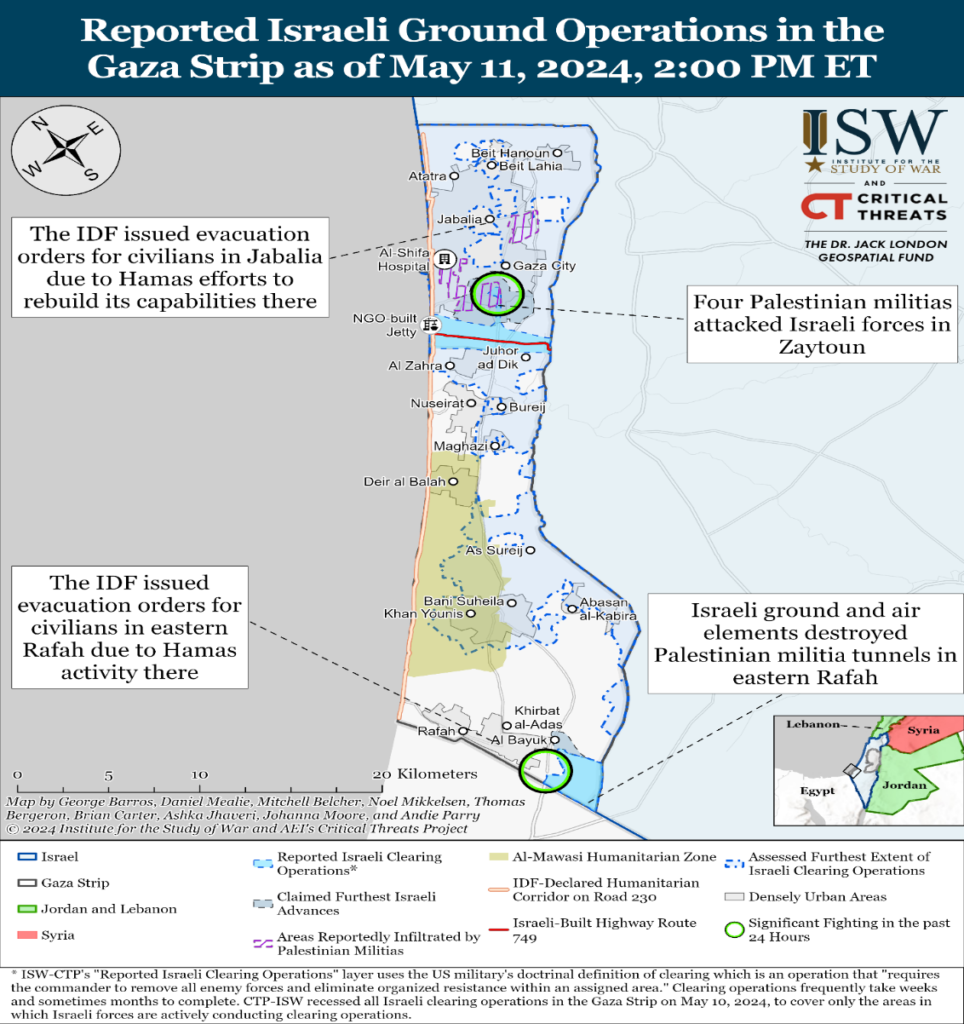
International Reaction to the Rafah Offensive
In many capitals around the world, massive anti-Israel demonstrations are ongoing. For several weeks, students at leading Western universities have been causing mass unrest and urging the authorities of their countries to stop the war in the Middle East and put pressure on Israel. There is also talk of sanctions against Israel among Western officials. Belgian Prime Minister Alexander De Croo said he was pushing for EU-wide trade sanctions against products made in Israeli settlements. What could the operation in Rafah lead to?
The situation is very complex. Regardless of how precise the Israeli strikes are, they will lead to the mass killing of thousands of civilians. This will further increase the world’s negative perception of Israel. Jewish communities worldwide are concerned as they believe the actions of the Israeli authorities will lead to an increase in anti-Semitism and aggression against ethnic Jews.
In a grand procession at the beginning of May, Sinai militia leader arrived at a ceremony to the Arab Tribes Union, a new paramilitary entity that brings together five tribal groups from across Egypt. The formation of this alliance comes at a critical time and place, as Israel launched a long-threatened ground offensive against the Palestinian city of Rafah, just a short distance from where the Egyptian ceremony was held.
Since the outbreak of the Gaza war on October 7, Egyptian officials have repeatedly warned Israel over the potential displacement of Palestinians to the Sinai. They have even threatened to cancel the the country’s peace treaty with Israel. The historical experiences of Palestinian displacement, along with Israel’s goal to empty historic Palestine of its people, prevent their return and seize their lands, are well known to the Egyptian state. Yet Egypt cannot stop the Israeli military operation, nor halt its tanks from invading the tents of displaced Palestinians in Rafah.
Early on, Egypt started building tent cities for this scenario. It reinforced the fences and barriers along its border with the Gaza Strip, tightened border security, and mobilized support and funding for Gaza itself. Reports of Egypt constructing an enclosure in the Sinai for Palestinian refugees have also been circulating since 7 October. In February 2024, satellite images showed an area of land just the other side of the Egyptian Rafah crossing being cleared for construction, potentially as a holding area for Palestinians when they are expelled from Gaza.
But there are a couple of issues with this plan. For one, many displaced Palestinians have family and tribal ties in the northern Sinai. The Egyptian and Palestinian cities of Rafah were once united until Israel’s withdrawal from the Sinai and the demarcation of borders in 1982. Many tribes are still divided, with some members in Palestinian Rafah and others in Egyptian Rafah. Tribal customs compel hospitality and reception, which will weaken the ability of the Egyptian state to contain all displaced people in a single area. This could also open the door to fresh confrontations and disputes between state agencies and Sinai tribes. In addition, a wave of displacement would raise significant challenges for Egypt from a military and security perspective. The last thing the Egyptian regime wants is an image of an Egyptian soldier firing at displaced Palestinians, or in any way treating them improperly, amid the unprecedented tragedy in Gaza – especially considering the simmering public anger over the Sisi regime’s handling of the Gaza genocide so far.
Through the use of the newly minted Arab Tribes Union, the regime might have found its only option for handling this situation, while avoiding the direct involvement of state soldiers. Organi is a prime choice to lead this task after his previous successes in organizing the fight to destroy the ISIS chapter in Sinai, which worked alongside the Egyptian army to fight the ISIS affiliate, and in running companies that manage the movement of people and goods between Gaza and Egypt. But Organi’s companies – linked to the Egyptian government- have also faced allegations of exploitative behavior ; it charged Palestinians $5,000 per person, a vast sum for most people in Gaza, to escape the war and travel to Egypt via the Rafah border crossing.
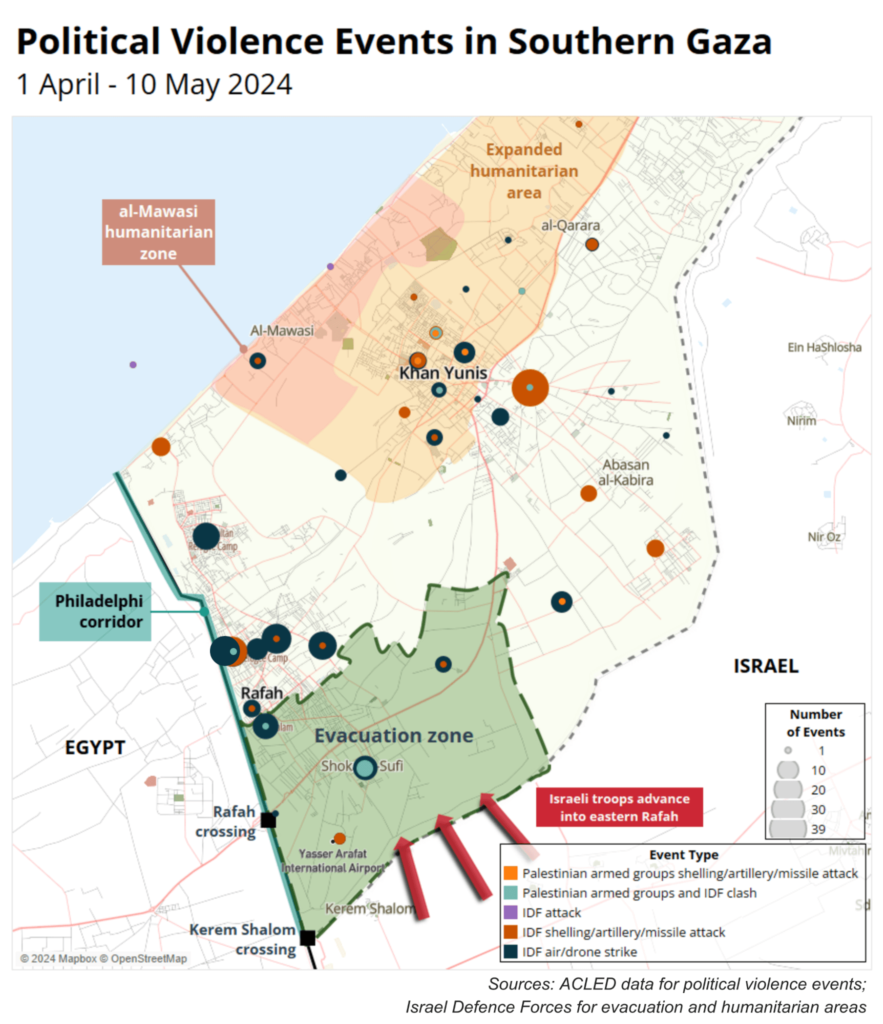
On 6 May, Israeli ground forces advanced into east of Rafah supported by artillery shelling and airstrikes aimed at Hamas infrastructure. Notable locations struck by these airstrikes included the long-closed Yasser Arafat International Airport and the residential areas of Shaukat As Sufi and As-Salam southeast of Rafah. Israeli warplanes also launched attacks on warehouses within the Palestinian side of Rafah crossing amid the movement of troops along the Philadelphi corridor. By the next day, the IDF had captured the Palestinian side of Rafah crossing, located approximately 3.5 kilometers from the Israeli border, and advanced north to take control of Salah ad-Din road west of al-Bayuk area.
On the first day of the operation, Hamas avoided direct confrontations with IDF troops to minimize exposure to Israel’s superior firepower in open areas. From 7 May to 10 May, Hamas engaged in daily armed clashes with Israeli military units positioned near the Rafah crossing. Egypt has stopped all aid shipments from its territory, according to documents seen by the Financial Times, after Israel launched a military offensive into the southern city of Rafah in May, seizing the key border crossing with Egypt.
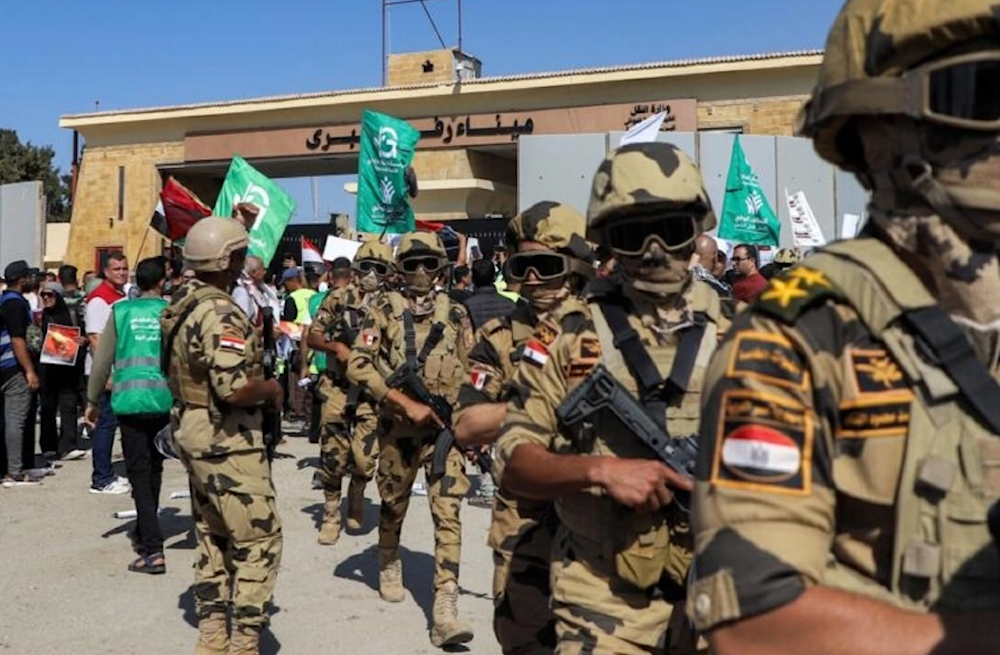
Israeli officials allege that they gained control of the Rafah crossing in May as part of an effort to cut off Hamas around eight months into the war on Gaza, alleging that the Palestinians utilized this passage to put up tunnels for smuggling goods and arms into Gaza. According to Israel, the tunnels between Egypt and Gaza have also “given the Palestinians in the besieged enclave some aid in the strip, and now the siege will be much tighter, and Gaza’s humanitarian crisis will only deteriorate.
Nabeel Khoury, former deputy chief of mission at the US embassy in Yemen told Responsible Statecraft that Israeli control over the corridor means “the complete encirclement of Gaza,” which denies Palestinians “all hope of an Israel-free part of their borders.” Khoury also explained that the takeover would further hinder humanitarian aid efforts into the strip. “Israel’s right-wing is getting its desired goal here: Full encirclement of Palestinians and denial of all means of livelihood — in other words, a step closer to driving out whoever is still alive once this war ends if it ever does,” Khoury added.
Israel must be pressured to withdraw from the Philadelphi Corridor and the Rafah crossing. Egypt has been attempting to defuse tensions with “Israel’s” government while also containing increasing discontent among Egyptians who are fiercely pro-Palestinian. By seizing control of the corridor, “Israel” is breaking the 1979 peace treaty with Egypt, something that may impact the future of Egyptian-Israeli relations since neither side wants to formally break ties, Patrick Theros, the former U.S. Ambassador to Qatar explained:
“Cairo has shown it can suppress demonstrations effectively, but there has to be a point where Sisi must do something to placate public opinion. I don’t know when, where, or what. But it must come.”
Egyptian soldiers serving at the Gaza–Sinai border are becoming increasingly demoralized at their inability to help Palestinians they see being killed by Israeli bombing. Middle East Eye (MEE) on 18 June interviewed several Egyptian soldiers in the city of Port Said, where soldiers serving in Sinai stop over to rest between deployments in Sinai.
“It is painful to know that you can help, but you are shackled and cannot help rescue your people from being slaughtered,” said Omar, 23, who has served as a patrolling officer in Egypt’s North Sinai, along the border with Gaza’s Rafah, over the past year.
“We’ve been watching and hearing how intense the Israeli bombing in Rafah is, and we see dozens of Palestinian families passing by the borders.”
Israel’s war on Gaza has so far killed more than 40,000 Palestinians, mostly women and children.
“We train day and night and repeat marching chants against the Zionist enemy, and we hear dedicated newsletters bragging about how ready the military is, but when this enemy is killing thousands of our brothers, we sit idle,” Omar told MEE.
On 27 May, Israeli forces killed two Egyptian soldiers, Abdallah Ramadan and Ibrahim Islam Abdelrazzaq, in clashes near the Rafah border. Following interviews with Omar and four other Egyptian soldiers, MEE reported that many are upset with the way the government is dealing with the war in Gaza and with the killing of their comrades. Omar, who serves in an elite unit, said the deaths of his two comrades had received little recognition from the Egyptian army, including its senior leadership and President Sisi.
The slain soldiers have not received a military funeral, and state-linked media have not reported on their deaths. Omar said morale in his unit is low because of the killings.
“How come the martyr Ramadan was not honoured and his name was not mentioned, and there were no high ranks at his funeral?” asked Omar.
“When the lowest-ranking police conscript gets killed in a car accident, they get a military funeral, and Ramadan, who fought the Zionists, gets buried secretly. What a shame!” he added.
Egypt has been a close ally of Israel since President Anwar Sadat signed the Camp David peace agreement with Israel under US auspices in 1979. Egypt has played a crucial role in enforcing Israel’s siege on Gaza since Hamas took control of the enclave in 2007. Egypt has continued coordination with Israel since the start of the genocide of Palestinians in Gaza in October, despite widespread support for the Palestinian cause among Egyptians. But in early May, the Israeli military took control of the Rafah crossing and closed it, preventing any Palestinians, including tens of thousands of injured who need treatment abroad, from leaving Gaza to Egypt. Because Egypt is a poor, heavily indebted country, it is difficult for Egyptian President Abdel Fatah El-Sisi to take stances opposing Israel and its main backer, the US.
Meanwhile, Israeli troops are engaged in close-quarters combat with resurgent Hamas fighters in north Gaza, an area the IDF previously claimed to have largely cleared of the Palestinian militant group. Fierce fighting has continued for days in what were once the Jabalia refugee camps and the central Gaza City neighborhood of Zeitoun, despite the Israeli military shifting its main focus to the southern city of Rafah.
Battleground Realities
Before the operation in Rafah began, following Israel’s order for the evacuation of civilians from the southern part of Gaza, Hamas spokesperson Sami Abu Zuhri told Reuters that Israel’s evacuation order and the expected offensive represent “a dangerous escalation that will have consequences.”
“We affirm that any military offensive in Rafah will not be a picnic for the fascist occupying army. Our brave resistance, the Qassam Brigades, is fully prepared to protect our people and defeat this enemy,” he said.
The first few days of May have seen a significant escalation of the situation in the southern Gaza city of Rafah, sending Western diplomats scrambling and resulting in new threats and counter-threats between Hamas and Israeli leaders. The IOF was preparing a massive buildup near from the middle of March. Hamas was observing this very carefully. On the 5th of May, Hamas launched a rocket attack, and several Israelis were killed. This gave Israel an excuse to close the border for aid into Gaza. Israel’s military said the Kerem Shalom Crossing with Gaza is now closed to aid trucks after it came under fire with mortar shelling which killed 3 Israeli soldiers and wounded 12 others from the Givanti and Nahal brigades, while Hamas claimed responsibility for the mortar attack on Kerem Shalom and said it targeted an Israeli army base.
10th May :- Resistance leader : The attacking Zionist forces are twice as many as the forces that attempted to advance into the neighborhood approximately two months ago, supported by dozens of tanks, troop carriers, and bulldozers. Our fighters were able to destroy several vehicles since yesterday, in addition to showering the enemy forces with 60 mm mortar shells. Our fighters are engaged in fierce battles with the occupation forces southwest of the al-Zaytoun neighborhood.
Hamas is meanwhile warning in a fresh reaction statement to the IDF preparing its long awaited offensive that it will not be a “picnic” for Israeli forces. “Our valiant resistance, led by al-Qassam Brigades, is fully prepared to defend our people,” the group said of its armed wing.
According to Netanyahu, control over the Rafah checkpoint was a “very important step on the path to undermining the military and administrative capabilities of Hamas.”
Overall, Hamas and the other Resistance groups in Gaza have and are conducting multiple attacks on the IOF. These include targeting tanks, bulldozers and APCs, troop concentrations, and attacks on command centers, plus ambushes, and much much more. Further details are in our next article, titled “The Resistance Begins Phase 2 the Gaza Front “. Stay tuned till then.

